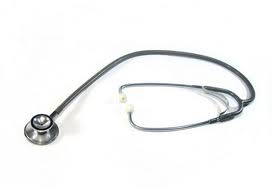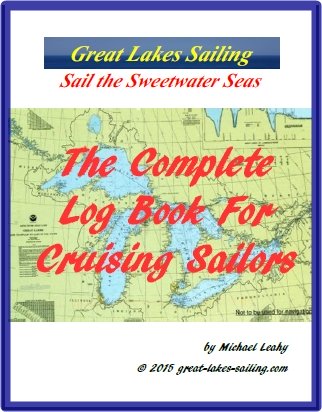Travel and Health Insurance
Writing about travel and health insurance is a challenge. We find out
that although the words closely resemble our native English, in fact
they have been 'adjusted' in some cases to mean other things.
 |
Sorting through the various clauses and legalese language in an insurance contract can be a source of high tension. |
The pages of fine print are all about exclusions, limitations and downright confusing language. In fact, the process of exploring good travel and health insurance options is not unlike choosing to go skipping through a minefield. But ...... that's what we're going to try and do.
(If you are looking for information on Boat Insurance, click here.)
Please Read This
I am not a licensed insurance agent or broker. The following comments are designed to shed some light on the topic. They are presented strictly for informational and educational use only. No representation or warranties of any kind are made with regard to the completeness or accuracy of the content. Any reliance you place on this information is at your own discretion. Always confirm information with experts, licensed professionals or authorities. If you do not agree with this, please do not use any information in this article.
Avoid the chatter on the many web
forums and boards that exist on the internet. For the most part, you are
getting incorrect information from people who have no idea what
they are talking about. Your physical and financial health is just too
important!
Whether you are American or Canadian, leaving our home waters can have a direct impact on your insurance coverage. A pre-existing condition stemming from an old injury or illness or a sudden medical emergency can result in catastrophic financial consequences. Its easy to come across travel insurance horror stories impacting both Americans and Canadians. Some resulted from travelers choosing to travel with no insurance at all. But the most distressing stories are of those who honestly thought they had proper coverage and had done the best they could to genuinely 'play by the rules' but ended up financially devastated. See this CBC story
And what if you don't plan to leave your home waters? I serve with a Canadian Coast Guard Auxiliary SAR unit. I was involved in a rescue involving a boat that sank in a severe storm. The boat was American flagged and the crew were American citizens. They were found and recovered safely and brought to shore – the Canadian shore. I am sure they didn't think at breakfast that by dinner time they would be receiving medical treatment in Canada. I can only hope that they had travel and health insurance to cover that clearly unexpected circumstance.
Cruising sailors generally tend to be prudent men and women. We have an understanding and appreciation of the awesome power of nature on the Great Lakes. I am sure that that prudence carries over into other parts of our lives. It is only prudent to address the question of health issues when we are traveling. What happens if I get sick or injured? Is treatment available? Can I get treatment even if it is available? Can I afford it? How will I pay for it? That's why you will see in each port review the name, telephone number and general location of the closest hospital and pharmacy. Accidents happen. Shortness of breath could be just that, or just maybe its the first warning sign of a cardiac problem. I didn't plan on plunging my leg through jagged board ends when a dock plank broke under foot one day – but it definitely happened!
Along with the horror stories come all sorts of urban myths – who hasn't heard about seriously-ill people being turned away from hospitals because they had no or little insurance? Lets deal with that first.
COVERAGE - Can I get help if I am hurt or ill?
Can you be turned away from a hospital in an emergency if you do not have insurance?
 |
American Sailors |
However, the requirement for treatment likely extends only to
stabilizing the patient and not continued, longer-term treatment. And,
you can expect a bill for the services rendered. But be assured, you
will be treated.
Canadian Sailors
If you are a Canadian, any landfall on the United States side of
the Great Lakes will put you in one of 8 different states. Under federal
legislation passed in 1986 (Emergency Medical Treatment And Labor Act –
EMTALA), no person requiring emergency medical treatment, regardless of
their citizenship or legal status, can be turned away from a hospital
that receives federal monies.(See this American College of Emergency Physicians document.)
In practice, this pretty much applies to every hospital in the
United States. Again, the treatment extends to stabilization of the
patient and does not include treatments that would require longer-term
care. And, as you would expect, a bill will be presented for the
services rendered.
Across the United States, there are 629 Catholic hospitals that operate
under the umbrella of the United States Conference of Catholic Bishops
(USCCB). The USCCB has outlined 5 principles of social responsibility
that Catholic hospitals must follow. The second principle states that
no-one can ever be turned away from a Catholic hospital based on ability
to pay. (See this USCCB Statement Here too, you will receive a bill afterwards for the services provided.)
So ..... the stories of people left, right and centre, being refused health service in emergencies are just that – stories.
COST
However, receiving emergency treatment is only part of the equation. The real issue is payment for that treatment. And it is here where we enter the minefield. Lets look as some examples of costs for medical procedures.
 |
The U.S. examples are taken from the “Healthcare Blue Book"
(healthcarebluebook.com) and based on costs in a Great Lakes port. These
are shown only as examples and may not reflect actual costs based on
actual circumstances. Costs in Ontario are generally about 50% of those
in the United States. |
- Emergency Dept. Visit – Severe Problem: US$2,669
- Coronary Bypass: US$63,399
- Upper Respiratory Infection: US$5,562
- Fractured Leg: US$13,736 – $14,880
The very first thing to do is to carefully read the insurance coverage that you have in place. And that means reading the fine print. I know it can be tedious but it is as vital as spending time deciphering the weather forecasts. When you are considering how much coverage to purchase, remember that there is likely little difference in premium between the lowest coverage amount and the highest.
Pay particular attention to the exclusions - medical conditions which are not covered and clauses on pre-existing conditions. This is where many people run into problems and find that their coverage is denied – after the money has been spent. Know your medical history and how the exclusions may apply. If necessary, speak with your doctor so that you are clear about what tests, procedures, etc. are now part of your medical record. Remember, when you apply for insurance, you give authorization for the insurance company to have complete access to your medical records. And these will be among the first records scrutinized when a claim is submitted.
When getting advice as to which insurance to purchase and what applies to you, make sure that the advice is coming from a licensed insurance agent, not a sales clerk or call centre agent. Take all advertising claims with a grain of salt. The evidence from claim denials is simply too overwhelming. In Canada, it is estimated that around 15,000 claims for out-of-country medical expenses are denied annually and I assume the number is significantly higher in the United States.
So, where can you go for information?
American Citizens
If you are an American citizen, start first with your group coverage, if you have it. Know what's in place so you can build on it. Look very carefully at the exclusions and pre-existing conditions. Group policies often have broad categories of exclusions. If you belong to a professional organization, there may be a travel and health insurance product that you either already have or can easily put in place. Again, broad exclusions are likely included in such policies. Often, people rely on the travel and health insurance attached to credit cards. Again, the exclusions can be sweeping. Speak with an independent insurance broker who has extensive experience or expertise in travel insurance. A broker will work with you to find the best product in the market place for your needs.
As an American, you can purchase specific travel insurance to cover a visit to Canada.
They can provide you with the best possible rates, in real time. There is no charge to obtain a quotation or to use their service.
Canadian Citizens
If you are a Canadian citizen sailing the Great Lakes, you are likely a resident of Ontario. You need to know that OHIP covers on average about 7% of an out-of-province medical bill - in Canadian funds! There is an unfortunate situation of a southwestern Ontario person who is dealing with a US$65,000 insurance bill – OHIP may only cover about $4,500 of that (in Canadian funds).
The first place to begin is with what you already have. Read your policy carefully, paying particular attention to exclusions and pre-existing conditions. Group policies often have broad categories of exclusions. If you belong to a professional organization, there may be a travel and health insurance product that you either already have or can easily put in place. Again, broad exclusions are likely included in such policies. Often, people rely on the travel and health insurance attached to credit cards. Again, the exclusions can be sweeping. Speak with an independent insurance broker who has extensive experience or expertise in travel insurance. A broker will work with you to find the best product in the market place for your needs. An excellent resource for travel insurance is KANETIX.
They can provide you with the best possible rates, in real time. There is no charge to obtain a quotation or to use their service.
Keep a copy of your travel & health insurance policy with your ship's papers. You don't know when you will need them. Hopefully never.
If you have had experiences with travel and health insurance or with insurance brokers serving you, please consider sharing them.
Click here to return from Travel and Health Insurance to HOME
Join hundreds of fellow
sailors
Subscribe to Rhumb
Line for updates and new port reviews
Your e-mail address is secure.
It is used only
to send you
Rhumb Line
The Complete Log Book For Cruising Sailors
written by a sailor for sailors

Click here for information
The Complete Log Book For Cruising Sailors
written by a sailor for sailors

a practical, easy-to-use yet thorough format to record all of the necessary information about your boat and any cruises you take – whether exploring home waters or voyaging to distant ports across the Great Lakes.
.
Click here for more details

